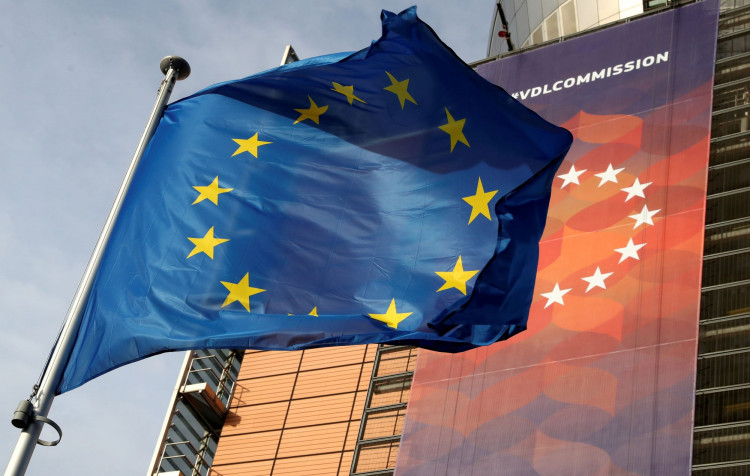As European Union leaders convened in Brussels on Thursday, migration took center stage in discussions, with many calling for tougher measures to address the influx of irregular migrants. The meeting underscored the increasing political pressure across Europe as member states grapple with both internal security concerns and the ethical challenges of immigration. Calls for a unified response come amid Poland and other Baltic states highlighting the use of migrants as a "weapon" by neighboring Russia and Belarus to destabilize the bloc.
Dutch Prime Minister Dick Schoof summed up the general sentiment among many leaders, stating, "We need to see collectively how we can limit the flow of asylum seekers and stimulate returns." While the EU finalized a new migration pact earlier this year after nearly a decade of debate, it is not set to be fully implemented until 2026. Leaders emphasized that more immediate action is required, even if concrete steps remain distant.
Poland's approach has added urgency to the summit, as it continues to advocate for suspending asylum rights for migrants crossing from Belarus, citing what it views as Belarus and Russia's active facilitation of migration as a form of hybrid warfare. Poland's Prime Minister, Donald Tusk, pointed to a recent surge in crossings, with numbers at the border with Belarus jumping by nearly 200% this year.
Immigration remains a divisive topic within the EU, with member states facing political pressure from rising far-right parties advocating for strict immigration control. While irregular migration numbers are down from the 2015 crisis levels, a new anti-immigration mood has swept across Europe, fueling a demand for stronger border controls. Hungary's Prime Minister Viktor Orbán, a long-time critic of the EU's migration policies, voiced the frustrations of many, declaring, "The peoples of Europe have had enough of illegal migration, failed economic policies, and the bureaucrats in Brussels."
Several EU nations, including Germany, France, and Italy, have responded by reintroducing border checks within the passport-free Schengen zone, signaling the political complexity of balancing national security and the EU's principles of free movement. Germany, traditionally more open to migration, has tightened its asylum laws and introduced checks at its nine land borders. The moves reflect the growing pressure on governments to address what many see as a mounting crisis, exacerbated by terrorist threats and strained asylum systems.
Adding to the complexity is the European Commission's recent proposal to establish "return hubs" outside the EU for migrants who do not have the right to stay. German Chancellor Olaf Scholz acknowledged the difficulties of implementing such a system, noting that for a large country like Germany, these hubs could only process a fraction of asylum requests. "If the common European asylum system is implemented more quickly now, if we make progress in terms of efficiency... that will help," Scholz said, while also recognizing that Europe still needs migrants to support its aging workforce.
In a parallel move, Italy recently opened two centers in Albania to process asylum applications of men attempting to cross into Europe. Italian Prime Minister Giorgia Meloni praised the initiative as "a courageous and unprecedented path," sparking discussions about whether such offshoring models could be replicated across the EU. However, the Albanian government has made it clear that this agreement is solely with Italy, limiting its scope.
The idea of "hotspots" or "migration centers" in third countries to house migrants while their asylum claims are processed has gained traction, though it remains controversial. Proponents argue that such centers, combined with new "partnership deals" with countries like Turkey and Tunisia, could reduce the influx of migrants to Europe. Critics, including human rights organizations, have raised concerns about the legality and morality of such an approach, pointing to instances of abuse and poor living conditions in countries where similar agreements have been implemented.
European Commission President Ursula von der Leyen has indicated her support for increasing deportation rates and establishing external migration centers. However, specific details on how these centers would operate or where they might be located remain unclear. Von der Leyen has also suggested that the EU should reconsider its list of "safe third countries" to which migrants could be returned, opening the door for stricter deportation policies.
Poland's push for suspending asylum rights, alongside Finland's earlier decision to suspend similar rights for migrants crossing from Russia, highlights the broader concerns of EU member states bordering non-EU countries. Both countries have accused Belarus and Russia of using migrants to create political instability, a charge that has only intensified amid the ongoing war in Ukraine.
While there is broad agreement among EU leaders that migration policies need reform, achieving consensus on how to do so remains a challenge. The EU's new Migration Pact aims to balance the needs of member states with the rights of asylum seekers, but some argue that it is not tough enough on deportations. As talks continue, many leaders are looking for faster solutions to address what they see as both a security issue and a humanitarian challenge.
Despite the disagreements, EU leaders agreed that immediate action is necessary to address the growing anti-immigration sentiment across Europe. National governments, including the Netherlands and Hungary, are already taking unilateral steps, calling for opt-outs from the pact if it is not strengthened. Meanwhile, NGOs continue to criticize the EU's external partnership deals, citing reports of human rights abuses in countries like Libya and Tunisia, where many migrants are returned under EU agreements.




